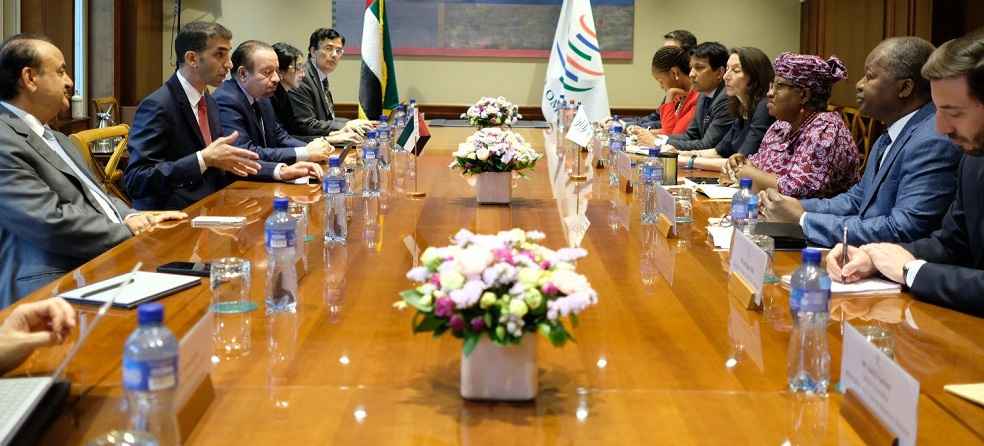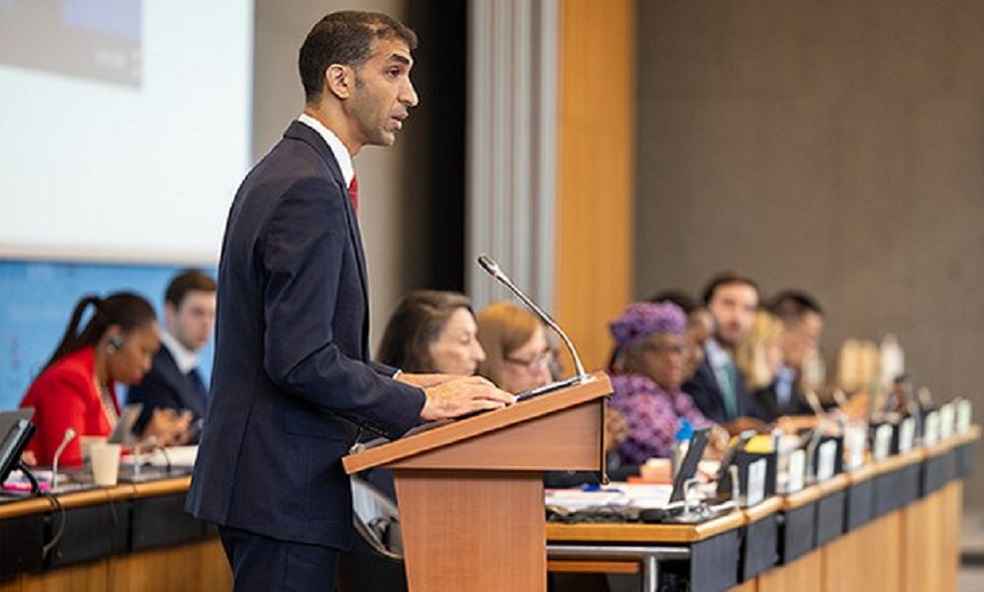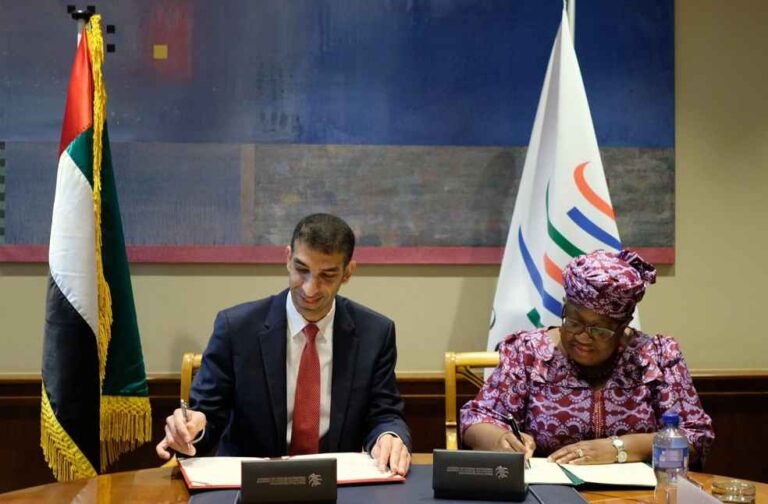A momentous chapter in the World Trade Organization’s (WTO) history unfolds as Thani bin Ahmed Al Zeyoudi, UAE’s Minister of State for Foreign Trade, ascends to the chairmanship of the WTO’s 13th Ministerial Conference (MC13). Delegates from across the world welcomed this development during the WTO General Council assembly held in Geneva, Switzerland.
This conference, due to launch in Abu Dhabi come February 2024, will witness participation from significant representatives of the WTO’s 164 members and customs blocs. Scheduled at a critical juncture of global trade dynamics, MC13 aims to solidify the conclusions of MC12, scrutinize the performance of the multilateral trading structure and deliver consequential decisions regarding the WTO’s future trajectory.
Addressing the global congregation, Al Zeyoudi emphasized the conference’s vital role. “This is a pivotal moment for world trade. As a Ministerial Conference, we have to tackle pressing issues and challenges, consider all the forces shaping the future of trade and come up with clear solutions, and challenge ourselves to take actionable decisions that move the needle on making trade more efficient, inclusive, and sustainable,” he conveyed.

Cognizant of the prevalent global challenges, Al Zeyoudi stressed the urgency to upgrade trade procedures and instill technological evolutions within supply chains. He outlined the overarching objective as facilitating transformative changes not merely at the forthcoming Abu Dhabi conference but for years to follow.
During the Geneva assembly, Al Zeyoudi held talks with WTO Director-General, Ngozi Okonjo-Iweala. Their conversation revolved around MC13’s blueprint, augmented by the discussion of trade as a significant theme at the upcoming Conference of Parties (COP28) scheduled for Dubai.
The newly appointed Chair’s inaugural address resonated with the delegates’ mutual responsibility of constructing resilient trade frameworks amid a complex global landscape. Al Zeyoudi urged WTO members to engage in focused and determined deliberations before MC13, reminding them of the wider implications of trade policies.

Zeyoudi further remarked reinforcing the shared obligation to foster a predictable, rules-based, and transparent trade. “Trade policy extends far beyond the scope of trade itself; it is about shaping our common future. It is our collective responsibility to contribute to a predictable, rules-based, and open trade and investment environment that creates prosperity for all – and this is precisely why the success of MC13 is so imperative.”
Al Zeyoudi’s leadership is poised to direct conversations on global trade concerns at next year’s conference in Abu Dhabi. As the world grapples with multifaceted economic challenges, the resolutions emanating from this conference bear the potential to shape the trajectory of international trade for future generations.
IMEX SECTOR | Morocco Seeks Livestock Imports from Australia Amidst Drought Crisis



